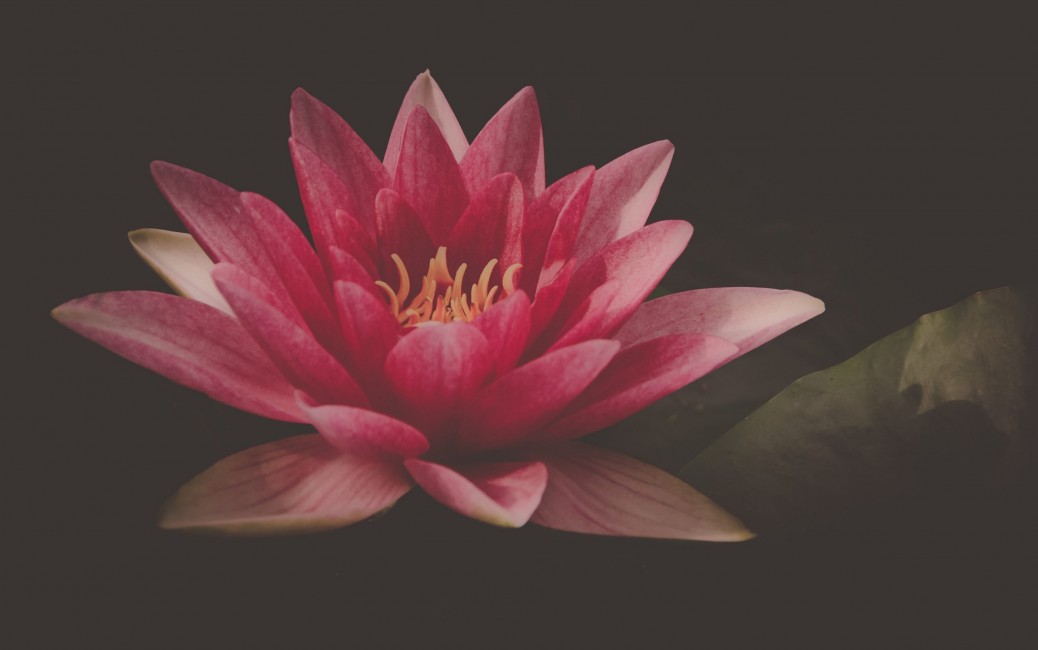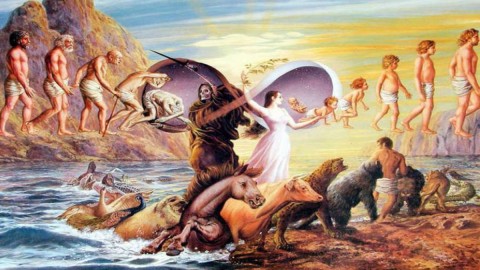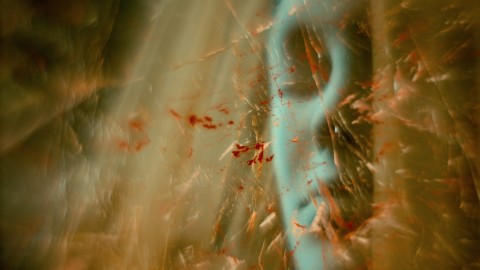… IN NIRVICHARA SAMADHI THE CONSCIOUSNESS IS FILLED WITH TRUTH.
So truth is not a conclusion to be reached; truth is an experience to be attained. Truth is not something that you can think about; it is something that you can be. Truth is the experience of oneself being totally alone, without any object. Truth is you in your uttermost purity. Truth is not a philosophical conclusion. No syllogism can give you truth. No theory, no hypothesis can give you truth. Truth comes to you when the mind disappears. Truth is already there hidden in the mind, and the mind won’t allow you to look at it because the mind is outgoing and helps you to look at objects.
IN NIRVICHARA SAMADHI THE CONSCIOUSNESS IS FILLED WITH TRUTH.
Ritambhara is a very beautiful word; it is just like Tao. The word truth cannot explain it completely. In the Vedas it is called rit. Rit means the very foundation of the cosmos. Rit means the very law of existence. Rit is not just truth; truth is too dry a word and carries much of the logical quality in it. We say, “This is true and that is untrue,” and we decide which theory is true and which theory is untrue. Truth carries much of the logic in it. It is a logical word. Rit means the law of the cosmic harmony, the law which moves the stars, the law through which seasons come and go, the sun rises and sets, and night follows day, and death follows birth. And mind creates the world and no-mind allows you to know that which is. Rit means the cosmic law, the very innermost core of existence.
Rather than calling it truth, it will be better to call it the very ground of being. Truth seems to be a distant thing, something that exists separate from you. Rit is your innermost being, and not only your innermost being, the innermost being of all, ritambhara. In nirvichara samadhi the consciousness is filled with ritambhara, the cosmic harmony. There is no discord, no conflict; everything has fallen in line. Even the wrong is absorbed, it is not discarded; even the bad is absorbed, it is not discarded; even the poison is absorbed, it is not discarded; nothing is discarded.
In truth, the untruth is discarded. In ritambhara, the whole is accepted, and the whole is such a harmonious phenomenon that even the poison plays its own part. Not only life but death also – everything is seen in a new light. Even the misery, the dukkha, takes a new quality to it. Even the ugly becomes beautiful because in the moment of the dawning of ritambhara, you understand for the first time why the opposites exist. And opposites are no more opposites; they have all become complementaries, they help each other.
Now you don’t have any complaint, no complaint against existence. Now you understand why things are as they are, why death exists. Now you know life cannot exist without death. And what life will be without death?- Life will be simply unbearable without death; and life would be simply ugly without death – just think!
There is a story about Alexander the Great, that he was in search to find something which can make him immortal. Everybody is in search of something like that, and when Alexander is in search, he will find it – he was such a powerful man. He searched and searched, and once he reached the cave where some wise man had told him that, “If you drink the water of that cave – there is a stream in the cave – you will become immortal.” Alexander must have been foolish. All Alexanders are foolish, otherwise he should have asked the wise man whether he had drunk from that stream or not. He didn’t ask; he was in such a hurry. And who knows? – He may not be able to reach the cave, and before he dies… so he rushed.
He reached the cave. Inside it, he was very happy: crystal clear the water was there; he had never seen such water. And he was going to drink the water… Suddenly a crow who was sitting in the cave said, “Stop! Don’t do it. I have done and I am suffering.” Alexander looked at the crow and said, “What are you saying? You have drunk, and what is the suffering?” He said, “Now I cannot die and I want to die. Everything is finished. I have known everything that life can give. I have known love and I have grown out of it. And I have known success; I was a king of crows, and now I am fed up, and I have known everything that can be known. And everybody I knew has died; they have gone back to rest, and I cannot rest. I have tried all efforts to commit suicide, but everything fails. I cannot die because I have drunk from this condemned cave. It is better that nobody knows about it. Before you drink, you meditate on my condition – and then you can drink.” It is said Alexander for the first time thought about it, and came back without drinking from that cave and that stream.
Life will be simply unbearable if there is no death. Love will be unbearable if there is no opposite to it. If you cannot separate from your beloved it will be unbearable; the whole thing will become so monotonous, it will create boredom. Life exists with the opposites – that’s why it is so interesting. Coming together and getting away, again coming together and getting away; rising and falling. Just think of a wave in the ocean which has risen and cannot fall, just think of a sun who has risen and cannot set. Movement from one polarity to another is the secret that life continues to be interesting. When one comes to know the ritambhara, the basic law of all, the very foundation of all, everything falls in line and one understands. Then one has no complaint. One accepts: whatsoever is, is beautiful.
That’s why all those who have known they say life is perfect; you cannot improve upon it.
IN NIRVICHARA SAMADHI THE CONSCIOUSNESS IS FILLED WITH TRUTH.
Call it Tao… Tao gives the meaning of ritambhara more correctly; but still if you can remain with the word ritambhara, it will be more beautiful. Let it remain there. Even the sound of it – ritambhara has some quality of harmony. Truth is too much dry, a logical concept. If you can make something out of truth plus love, it will be nearer to ritambhara. It is the hidden harmony of Heraclitus, but this happens only when the object has completely disappeared. You are alone with your consciousness and there is nobody else. The mirror without reflection…
Tags: Patanjali Yoga Sutra 14.3 Ritambhara










